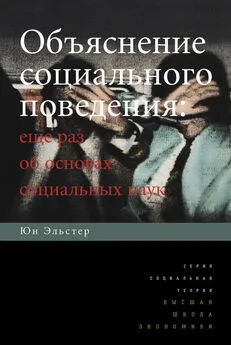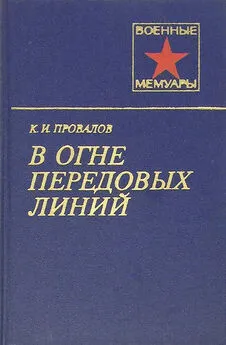Юн Эльстер - Кислый виноград. Исследование провалов рациональности
- Название:Кислый виноград. Исследование провалов рациональности
- Автор:
- Жанр:
- Издательство:Литагент ИЭП им.Гайдара
- Год:2019
- Город:Москва
- ISBN:978-5-93255-522-4
- Рейтинг:
- Избранное:Добавить в избранное
-
Отзывы:
-
Ваша оценка:
Юн Эльстер - Кислый виноград. Исследование провалов рациональности краткое содержание
Кислый виноград. Исследование провалов рациональности - читать онлайн бесплатно ознакомительный отрывок
Интервал:
Закладка:
• Laqueur W. (1980) The Terrible Secret. Boston: Little, Brown & Co.
• Lehrer K. (1978) Consensus and Comparison. A Theory of Social Rationality // Foundations and Applications of Decision Theory. Vol. I: Theoretical Foundations / C. A. Hooker, J. J. Leach, E. F. McClennen (eds). Dordrecht: Reidel. P. 283–310.
• Levenson J. (1968) Confucian China and Its Modern Fate. Vols. I–III. Berkeley: University of California Press.
• Lipsey R. G., Lancaster K. (1956) The General Theory of the Second Best // Review of Economic Studies. Vol. 24. Iss. 1. P. 11–32.
• Loevinger J. (1976) Ego-Development. San Francisco: Jossey-Bass.
• Luce R. D., Raiffa H. (1957) Games and Decisions. N.Y.: Wiley.
• Lyons D. (1965) Forms and Limits of Utilitarianism. Oxford: Clarendon Press.
• Maclntyre A. (1958) The Unconscious. L.: Routledge and Kegan Paul.
• Mahoney M. J., Thoresen C. E., eds. (1974) Self-Control: Power to the Person. Monterey, CA: Brooks/Cole.
• Maital S., Maital S. (1978) Is Discounting the Future Irrational? Mimeographed.
• March J. 1978. Bounded Rationality, Ambiguity and the Engineering of Choice // Bell Journal of Economics. Vol. 9. № 2. P. 587–608.
• Marx K. (1857–1888) Grundrisse. Harmondsworth: Pelican Books, 1973.
• Marx K. (1879–1880) Randglossen zu Wagner //Marx-Engels Werke, vol. XIX. Berlin: Dietz, 1962.
• Merton R. K. (1957) Social Theory and Social Structure. Glencoe, IL: Free Press.
• Meyer R. F. (1977) State-Dependent Time Preference // Conflicting Objectives in Decisions / D. E. Bell, R. L. Kenney, H. Raiffa (eds). N.Y.: Wiley. P. 232–245.
• Midgaard K. (1980) On the Significance of Language and a Richer Concept of Rationality // Politics as rational action / L. Lewin, E. Vedung (eds). Dordrecht: Reidel. P. 83–97.
• Mill J. S. (1859) Bentham // Idem. Utilitarianism. L.: Fontana Books, 1962. P. 78–125.
• Millay E. S. V. (1975) Collected Poems. N.Y.: Harper and Row.
• Mitroffl. I., Mason R. O. (1981) Creating a Dialectical Social Science. Dordrecht: Reidel.
• Morris J. M. (1978) Non-Events // Philosophical Studies. Vol. 34. № 3. P. 321–324.
• Nagel T . (1979) Mortal Questions. Cambridge: Cambridge University Press.
• Newton-Smith W (1981) The Rationality of Science. L.: Routledge and Kegan Paul.
• Nietzsch. F. (1887) Zur Genealogie der Moral //Idem. Werke in zwei Benden. Bd. II. Munchen: Hanser, 1967.
• Nietzsch. F. (1888) Ecce homo //Idem. Werke in zwei Bänden. Bd. II. Munchen: Hanser, 1967.
• Nisbett R., Ross L. (1980) Human Inference: Strategies and Shortcomings of Social Judgment. Englewood Cliffs, NJ: Prentice-Hall.
• North D., Thomas R. P. (1971) The Rise of the Western World. Cambridge: Cambridge University Press.
• Nozick R. (1969) Newcomb’s Problem and Two Principles of Choice // Essays in Honor of Carl Hempel / N. Rescher (ed.). Dordrecht: Reidel. P. 440–472.
• Parfit D. (1973) Later Selves and Moral Principles //Philosophy and Personal Relations / A. Montefiore (ed.). L.: Routledge and Kegan Paul. P. 137–169.
• Parfit D. (1981) Prudence, Morality and the Prisoner’s Dilemma // Proceedings of the British Academy. Oxford: Oxford University Press.
• Parkin F. (1968) Middle Class Radicalism. Manchester: Manchester University Press.
• Pateman C. (1970) Participation and Democratic Theory. Cambridge: Cambridge University Press.
• Pattanaik P. (1978) Strategy and Group Choice. Amsterdam: North Holland.
• Pears D. (1974) Freud, Sartre and Self-Deception //Freud /R. Wollheim (ed.). N.Y.: Anchor Books. P. 97–112.
• Popper K. (1957) The Poverty of Historicism. L.: Routledge and Kegan Paul.
• Pruyser P.W. (1974) Between belief and unbelief. N.Y.: Harper and Row.
• Pugin A.W. (1836) Contrasts. N.Y.: Humanities Press, 1969.
• Pugin A. W. (1841) True Principles of Christian or Pointed Architecture. L.: John Weale.
• Rader T. (1972) Theory of Microeconomics. N.Y.: Academic Press.
• Raiffa H. (1968) Decision Analysis. Reading, MA: Addison-Wesley.
• Rapoport A., Chammah A. (1965) Prisoner’s Dilemma. Ann Arbor: University of Michigan Press.
• Rorty A. (1980a) Self-Deception, Akrasia and Immorality //Social Science Information. Vol. 19. № 6. P. 905–922.
• Rorty A. (1980b) Akrasia and Conflict // Inquiry. Vol. 23. № 2. P. 193–212.
• Runciman W. G., Sen A. (1965) Games, Justice and the General Will // Mind. Vol. 74. № 296. P. 554–562.
• Russel R. (1966) The Effects of Slavery upon Nonslaveholders in the Ante-bellum South // Slavery and the Southern Economy / H. D. Woodman (ed.). N.Y.: Pantheon. P. 117–127.
• Ryan A. (1978) Comment // Political Participation /S. Benn et al. (eds). Canberra: Australian National University Press. P. 31–36.
• Samuelson P. (1976) Speeding-up of Time with Age in Recognition of Life as Fleeting //Evolution, Welfare and Time in Economics: Essays in Honour of Nicholas Georgescu-Roegen / A. M. Tang, F. M. Westfield, J. S. Worley (eds). Lexington, MA: Lexington Books. P. 154–168.
• Schafer R. (1976) A New Language for Psychoanalysis. New Haven: Yale University Press.
• Scheff T. J. (1966) Being Mentally Ill: A Sociological Theory. Chicago: Aldine.
• Scheler M. (1972) Ressentiment. N.Y.: Schocken Books.
• Schelling T C. (1978) Egonomics, or the Art of Self-Management // American Economic Review: Papers and Proceedings. Vol. 68. № 2. P. 290–294.
• Schelling T C. (1980) The Intimate Contest for Self-Command // The Public Interest. Vol. 60. P. 94–118.
• Schelling T C. (1982) Identifying the Authentic Self: Some Ethical Issues.Paper presented to a colloquium on “The multiple self”, Maison des Sciences de l’Homme (Paris).
• Schotter A. (1981) The Economic Theory of Social Institutions. Cambridge: Cambridge University Press.
• Schumpeter J. (1934) The Theory of Economic Development. Cambridge, MA: Harvard University Press.
• Schumpeter J. (1954) Capitalism, Socialism and Democracy. L.: Allen and Unwin.
• Segre E. (1980) From X-rays to Quarks. San Francisco: Freeman.
• Sen A. (1967) Isolation, Assurance and the Social Rate of Discount // Quarterly Journal of Economics. Vol. 81. № 1. P. 112–124.
• Sen A. (1970) Collective Choice and Social Welfare. San Francisco: Holden-Day.
• Sen A. (1974) Choice, Orderings and Morality //Practical Reason / S. Körner (ed.). Oxford: Blackwell. P. 54–67.
• Sen A. (1975) Employment, Technology and Development. Oxford: Oxford University Press.
• Sen A. (1976) Liberty, Unanimity and Rights //Economica. Vol. 43. Iss. 171. P. 217–245.
• Sen A. (1979) Informational Analysis of Moral Principles //Rational Action / R. Harrison (ed.). Cambridge: Cambridge University Press. P. 115–132.
• Sen A. (1980–1981) Plural Utility //Proceedings of the Aristotelian Society (n.s.). Vol. 81. P. 193–215.
• Sewall R. B. (1974) The Life of Emily Dickinson. L.: Faber and Faber.
• Shepard R. N. (1964) On Subjectively Optimum Selection among Multiattribute Alternatives // Human Judgment and Optimality / M. W. Shelley, G. L. Bryan (eds). N.Y.: Wiley. P. 257–280.
• Skinner B. F. 1981. Selection by Consequences //Science. Vol. 213.№ 4507. P- 501–504.
• Smullyan R. 1978. What Is the Name of This Book? Englewood Cliffs, NJ: Prentice-Hall.
• Smullyan R. 1980. This Book Needs No Title. Englewood Cliffs, NJ: Prentice-Hall.
• Stendhal. (1949) Vie de Henry Brulard, ed. Martineau. P.: Le Divan.
• Stendhal. (1950) Souvenirs d’egotisme, ed. Martineau. P.: Le Divan.
• Stendhal . (1952) Lucien Leuwen // Idem. Romans et Nouvelles, ed. Pleiade, vol. I. P.: Gallimard.
• Stendhal . (1965) De l’amour. P.: Garnier-Flammarion.
• Stendhal . (1970) Racine et Shakespeare. P.: Garnier-Flammarion.
• Stendhal . (1981) Oeuvres Intimes, ed. Pleiade, vol. I. P.: Gallimard.
• Stigler G., Becker G. (1977) De gustibus non est disputandum //American Economic Review. Vol. 67. № 2. P. 76–90.
• Stinchcombe A. (1974) Merton’s Theory of Social Structure // The Idea of Social Structure: Papers in Honor of Robert Merton / L. Coser (ed.). N.Y.: Harcourt, Brace, Jovanovkh. P. 11–33.
• Stinchcombe A. (1980) Is the Prisoner’s Dilemma All of Sociology? //Inquiry.Vol. 23. № 2. P. 187–192.
• Stouffer S. A. et al. (1949) The American soldier. Princeton: Princeton University Press.
• Strotz R. H. (1955–1956) Myopia and Inconsistency in Dynamic Utility Maximization // Review of Economic Studies. Vol. 23. № 3. P. 165–180.
• Sundt E. (1862) Nordlandsbaden // Verker i Utvalg, vol. VII. Oslo: Gyldendal, 1976.
• Suzuki D. T. (1969) The Zen Doctrine of No-Mind. L.: Rider.
• Taylor C. (1976) Responsibility for Self // The Identities of Persons / A. Rorty (ed.). Berkeley: University of California Press. P. 281–300.
• Taylor C. (1979) What’s Wrong with Negative Liberty //The Idea of Freedom /A. Ryan (ed.). Oxford: Oxford University Press. P. 175–194.
• Taylor M. (1976) Anarch. and Cooperation. Chichester: Wiley.
• Taylor M., Ward H. (1982) Chickens, Whales and Lumpy Goods: Alternative Models of Public Goods Provision // Political Studies. Vol. 30. № 3. P. 350–370.
• Thaler R. H., Shefrin H. M. (1981) An Economic Theory of Self-Control //Journal of Political Economy. Vol. 89. № 2. P. 392–406.
• Thompson E. P. (1968) The Making of the English Working Class. Harmondsworth: Pelican Books.
• Tocqueville A. 1952. L’ancien régime et la révolution. Edition des Oeuvres Completes, vol. I. P.: Gallimard.
• Tocqueville A. 1953. L’ancien rigime et la revolution. Edition des Oeuvres Completes, vol. II. P.: Gallimard.
• Tocqueville A. 1962. Ecrits et aucours politiques. Edition des Oeuvres Completes. P.: Gallimard.
• Tocqueville A. 1969. Democracy in America. NY.: Anchor Books.
• Trivers R. (1971) The Evolution of Reciprocal Altruism // Quarterly Review of Biology. Vol. 46. № 1. P. 35–57.
• Tsou T. (1980) Back from the Brink of Revolutionary-‘Feudal’ Totalitarianism: Some Preliminary Reflections. Mimeographed.
• Tversky A. (1981) Choice, Preference and Welfare: Some Psychological Observations. Paper presented to a colloquium on “Foundations of social choice theory”, Ustaoset (Norway).
• Tversky A. (1982) Self-Deception and Self-Perception: Some Psychological Observations. Paper presented to a colloquium on “The multiple self”, Maison des Sciences de l’Homme (Paris).
• Tversky A., Kahneman D. (1974) Judgment under Uncertainty // Science. Vol. 185. Iss. 4157. P. 1124–1130.
• Tversky A., Kahneman D. (1979) Prospect Theory: An Analysis of Decision under Risk //Econometrica. Vol. 47. № 2. 263–291.
Читать дальшеИнтервал:
Закладка:







